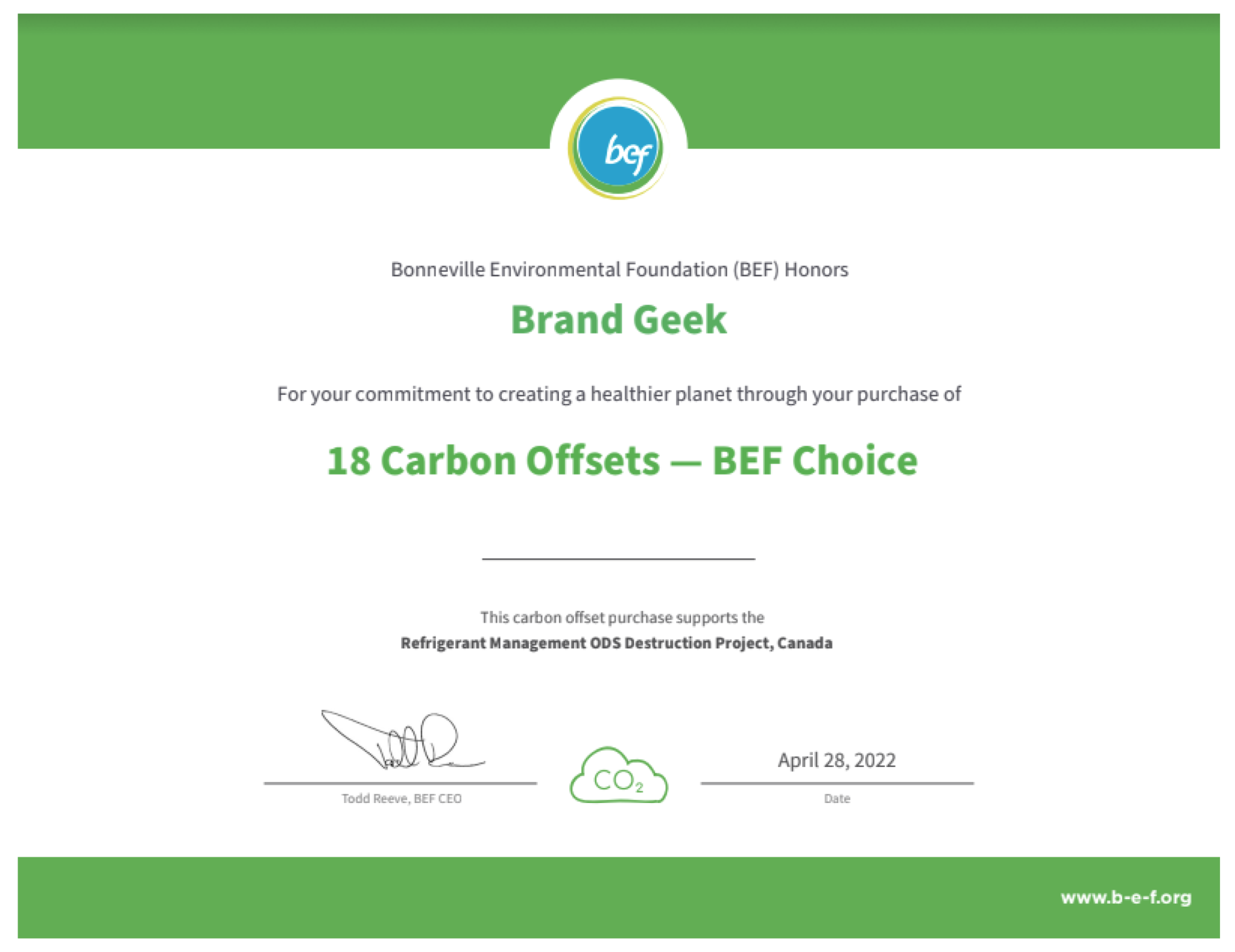Brandgeek proudly supports Mountain Area Preservation and is humbled to be…
Geekview IP Weeks(ish) in Review
Universal’s Takedown Notice goes up in smoke.
Universal Music Group (UMG) recently issued a Takedown Notice to YouTube instructing it to remove a song by the Florida based rap band, After the Smoke. This might make sense if After the Smoke was on one of Universal’s record labels or if UMG owned the copyright of the song it had removed. However, according to an article on TechDirt, UMG neither signed After the Smoke, nor did it own the copyright of the song removed from YouTube. So what happened? Apparently some rappers — including After the Smoke — develop and sell “beats.” After the Smoke opened for a rap artist named Yelawolf before he was signed to UMG and offered to sell him one of their beats, which he recorded a rap to but never released. In December, 2011 someone leaked the Yelawolf track, which led to a public statement from the folks at Yelawolf who explained that leaking tracks sucks. Soon thereafter After the Smoke recorded a song (One in a Million) to the same beat, which they uploaded to YouTube only to have it removed by UMG. According an article on Vice, YouTube ignored After the Smoke’s requests to reinstate its song until the story broke in the national media, which proves how far bad press can go in leveraging the right result. Elsewhere Siri will keep the world’s iPhone users on track . . .
Apple takes Siri seriously. (Siriously!)

Apple introduced Siri with the launch of its Apple 4s iPhone in October, 2011. First though, it had to purchase the rights to 3 other SIRI marks: (1) SIRI for voice-controlled on-line automated inquiries; (2) SIRI for downloadable software for providing consumer resources for searching, locating, rating, evaluating and providing directions for a wide range of consumer products & services; and (3) SIRI (& design) for providing consumer resources for searching, locating, rating, evaluating and providing directions for a wide range of consumer products & services; and voice-controlled/activated inquiries. At the end of January, Apple filed 9 more trademark registration applications for SIRI for: (1) computers, parts & accessories; (2) toys; (3) advertising, marketing & promotion services; (4) telecommunications services; (5) data storage and reservation services; (6) education & entertainment services; (7) computer programming & design services; (8) hotel & restaurant & travel reservation services; and (9) online social networking services. Looks like Apple has big plans to boost Siri’s brand recognition while Nestle claims Mead Johnson stole its BOOST intellectual property . . .
Mead Johnson unfairly boosted itself up on Nestle’s IP.
 Nestle seeks to take Mead Johnson (MJ) down a peg by suing it for infringement of its design patent as well as trade dress infringement, unfair competition, unjust enrichment, and tortious interference with contractual relations. MJ sold BOOST nutritional drinks in the packaging shown above prior to 2004. MJ’s parent company, Bristol-Myers, sold MJ’s BOOST drink business and all related IP to Nestle in 2007 with the agreement that MJ would continue to supply Nestle with the BOOST branded product, the packaging for which Nestle licensed back to MJ solely for that purpose. Nestle claims that MJ instead used the Boost product packaging on private label products for retailers Wal-Mart, Kroger and Sam’s Club and that it unfairly obtained a WIC contract through such infringing activity. Boosting sales by infringement sure seems shady to me. Most folks who can’t seem to stay in the shade probably use skin cream . . .
Nestle seeks to take Mead Johnson (MJ) down a peg by suing it for infringement of its design patent as well as trade dress infringement, unfair competition, unjust enrichment, and tortious interference with contractual relations. MJ sold BOOST nutritional drinks in the packaging shown above prior to 2004. MJ’s parent company, Bristol-Myers, sold MJ’s BOOST drink business and all related IP to Nestle in 2007 with the agreement that MJ would continue to supply Nestle with the BOOST branded product, the packaging for which Nestle licensed back to MJ solely for that purpose. Nestle claims that MJ instead used the Boost product packaging on private label products for retailers Wal-Mart, Kroger and Sam’s Club and that it unfairly obtained a WIC contract through such infringing activity. Boosting sales by infringement sure seems shady to me. Most folks who can’t seem to stay in the shade probably use skin cream . . .
Natural with chemicals?!?
Neutrogena sells a line of “natural” skin care products called Neutrogena Naturals, the packaging for which states, “No harsh chemical sulfates, parabens, petrochemicals, dyes or perfumes.” Contrary to this claim, the Neutrogena Naturals purifying facial cleanser, purifying pore scrub, face & body bar, and makeup remover contain various artificial and synthetic ingredients, including: sodium benzoate, caprylyl glycol, acrylates copolymer, potassium sorbate, benzyl alcohol, cocamidopropyl betaine, cocamidopropyl hydroxysultaine, guar hydroxypropyltrimonium chloride, pentasodium pentetate, tetrasodium etidronate and propylene glycol. Whoa! Ms. Desiree Stephenson was so upset over the chemicals in her cleanser that she filed a class action lawsuit against Neutrogena after buying Neutrogena Naturals products, which in fact contain numerous artificial chemical ingredients. Ms. Stephenson argues that she paid a premium for Neutrogena Naturals over alternative products that were not marketed as “natural,” but she did not get the benefit of her bargain. Asserting that the chemicals found in Neutrogena Naturals are not the type of ingredients a reasonable consumer would expect to be in a natural product, Stephenson seeks: a preliminary and permanent injunction barring Neutrogena from making misleading advertising statements; an order directing Neutrogena to engage in corrective advertising to inform the public that its Naturals products do not have the characteristics benefits and qualities initially claimed; an order of restitution to all purchasers of the Neutrogena Naturals products; plaintiff’s damages and attorneys’ fees. As false advertising class action lawsuits keep increasing, we continue to see that it pays to be honest. And while Neutrogena may have mud on its face, a dishonest developer couldn’t outfox Spryfox . . .
Spryfox pounces 6Waves & Lolapps.
Yup. This could only result from game developers battling over creativity in court. Spry Fox (Spry) has a game named Triple Town in which game players colonize a great new frontier and build the city of their dreams. Spry approached 6waves and Lolapps with the opportunity to become the publisher of Triple Town on Facebook and possibly other platforms. The deal fell through and Spry released Triple Town directly on Facebook. After negotiations between the parties ceased, 6waves and Lolapps released a game called Yeti Town on Apple’s iOS platform, which Spry Fox claims is “clone” of Triple Town, only with snow. Triple Town received accolades from various game websites like Gamezebo and Gamasutra and Edge Magazine and when Yeti Town was released numerous media outlets, including Inside Social Games, Games.com and Gamezebo noted the similarities in the games. Spry Fox’s CEO, Dave Edery, announced on his blog the company’s decision to file suit against 6waves & Lolapps for copyright infringement and unfair competition. If the allegations in the complaint are true, 6waves’ ship is sunk and Lolapps hasn’t much to laugh about. And in other copyright infringement news . . .
Gingrich may not survive using Eye of the Tiger.
Republican Presidential candidate Newt Gingrich failed to seek a license to use Eye of the Tiger as one of the theme songs for his Presidential campaign, which Rude Music thinks is not only rude, but also constitutes willful copyright infringement. Frankie Sullivan, one of the co-authors of Survivor’s Eye of the Tiger, owns Rude Music which is a co-owner in the song’s copyright, which was timely registered with the US Copyright Office back in 1982. Rude Music filed a lawsuit against Gingrich and others alleging that they engaged in willful copyright infringement by broadcasting the song over the PA system at political conferences and similar events and by re-broadcasting videos of these events with the infringing song on their websites. While broadcast of the song at public establishments — like hotels and event centers — are covered by the public performance license the venues pay to ASCAP, BMI and SESAC, broadcasting of the song from Newt’s tour bus loudspeaker requires its own performance license and use on websites requires a separate new media license. Kinda scary when the folks vying to run our country don’t seem to respect its laws. Presidential candidates aren’t the only ones ignoring copyright laws . . .
Fox news copies, then removes, Pulp article . . .
A small alternative weekly called The Pulp, which is owned by the decidedly liberal Village Voice, ran an article titled titled, Mark Oxner, Florida Congressional Candidate Releases Terrifying Anti-Obama Ad (found here). Fox News Nation liked the article so much, it re-ran it on its website under the title Epic Campaign Ad Brings Obama’s ‘Captain of the Ship’ Analogy to Life. Upon finding its article reprinted on Fox News’s website, The Pulp published a letter to Fox on its website titled “We Make Our Demands After Fox News Plagiarized This Website” (found here). Fox appears to have since removed the Pulp’s article from its website, so that now all that remains is the title Epic Campaign Ad Brings Obama’s ‘Captain of the Ship’ Analogy to Life and Oxner’s odd video. Odd indeed.
 The internet is like a magnifying glass. It makes it far more difficult to “get away with” bad behavior — be it false advertising, copyright infringement or something else altogether — and far more costly (in terms of cash and reputation) when you get caught.
The internet is like a magnifying glass. It makes it far more difficult to “get away with” bad behavior — be it false advertising, copyright infringement or something else altogether — and far more costly (in terms of cash and reputation) when you get caught.









Comments (0)